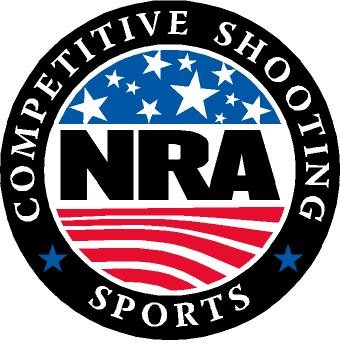NRA Competitive Shooting Series, Part 3: How to Find a Match and What to Expect
Dave Maas 03.01.17
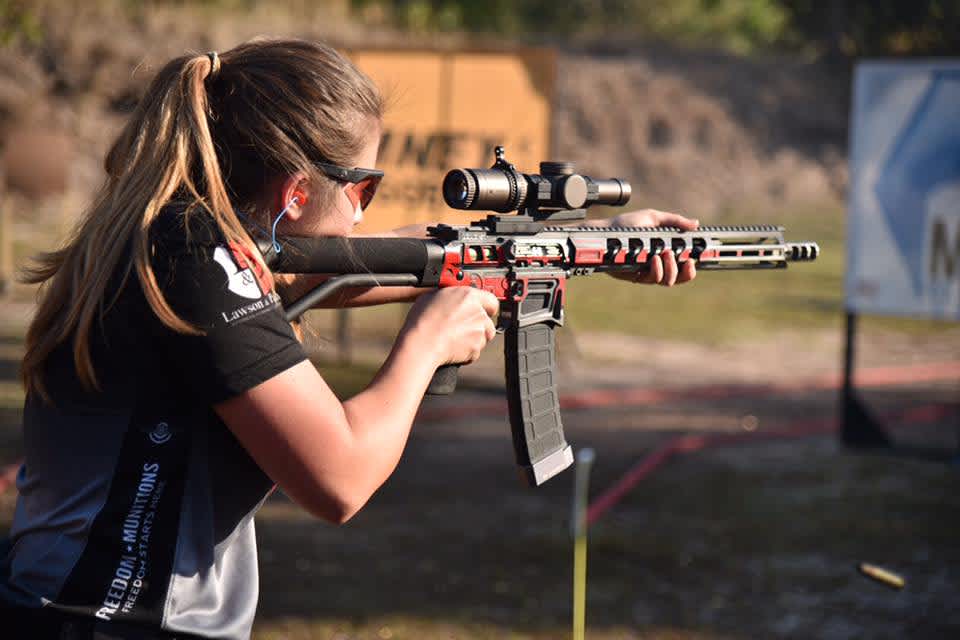
Last time in Part 2 of our Competitive Shooting Series, I talked about the various Shooting Disciplines and Competitions that provide a wide range of opportunities to pique any interest. In this article I’ll explain how to get involved and what you can expect in a competition.
Most types of structured competitions have an organized scoring and classification system that helps you figure out where you are on the skill spectrum. This helps an individual compete against others with similar experience. Think of it this way: Local ranges and clubs can run an “official match” by filling out a bit of paperwork in advance, running the competition according to standards, and submitting results. The advantages of doing this boil down to standardization. When you shoot a match, you’ll be shooting at the same types of targets, from the same distances, and under the same time constraints (if applicable) as someone else in another location. That allows national classification of all participants.
So, for example, if you achieve a classification of Sharpshooter or High Master in a shooting discipline, you’ll be on the same approximate skill level as a Sharpshooter or High Master somewhere else. Make sense?
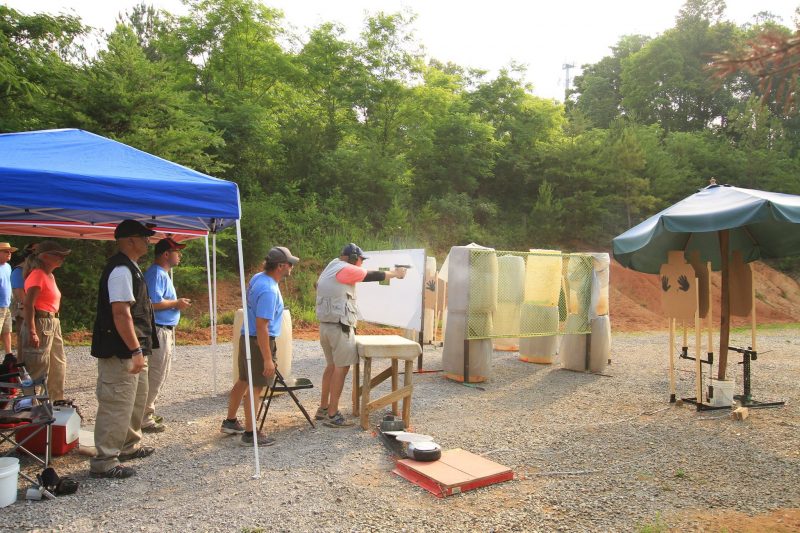
Before we talk about different types of competitions and how to find them, I should note that in many cases you don’t even need a rifle or handgun to shoot your first match. Many match directors will be happy to loan a new competitor equipment on site, so if you’re lacking a piece of gear (even the right gun), simply contact the organizers in advance to see if there are any loaners available.
Here’s a brief look at some of the types of local competitions and where you can find information about what to expect:
International Defensive Pistol Association (IDPA)
IDPA competitions place you in mocked-up scenarios designed to test your defensive shooting skills. You might find yourself sitting in a “restaurant” with your gun in a concealed belt holster. At the buzzer, it’s your job to navigate your way out, dealing with “bad guy” targets while avoiding bystanders. Scenarios are only limited by the creativity of the match directors.
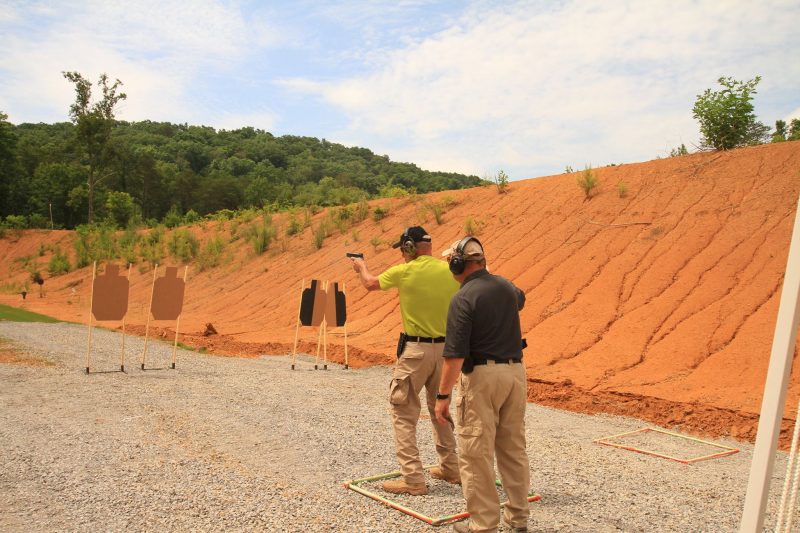
The easiest way to find a match or club near you that offers IDPA is to check the Competitions page of the IDPA website.
United States Practical Shooting Association (USPSA)
While IDPA focuses on developing your concealed carry skills, USPSA is all about volume and speed. If you want to send plenty of pistol rounds downrange, check out a USPSA match in your area. Stages in a USPSA match also involve “scenarios” but they’re designed to test your planning, concentration, and speed shooting skills. You’ll be presented with a variety of targets, locations, and instructions. It’s up to you to decide how to engage in the fastest and most efficient manner possible.
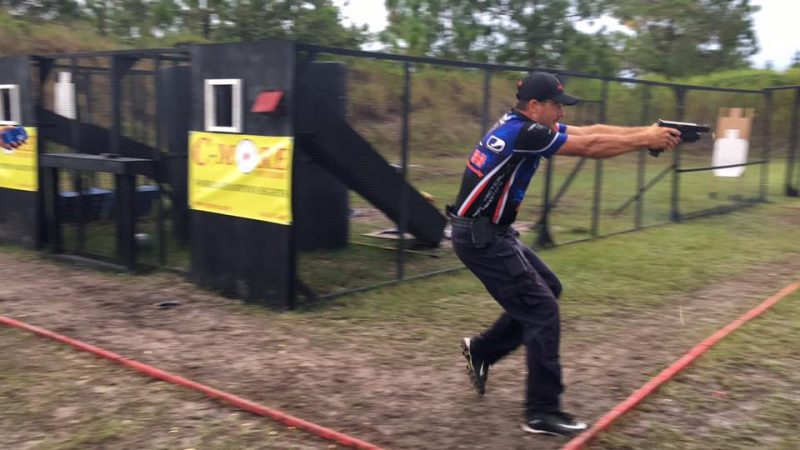
The USPSA website maintains a list of upcoming regional and sectional matches, but if you want to get involved in regular weekend competitions, you can find a club near you by visiting the USPSA club search page.
Many shooters love steel, mainly for the immediate and satisfying “Clang!” when you make a direct hit. Steel Challenge matches combine that and speed by presenting competitors with five different targets on each stage. The goal is simple: draw your pistol and hit each one as fast as you can. There are divisions for centerfire pistols such as 9mm or .45 ACP, but you can also enter with .22LR pistols or rifles, so you can shoot a lot of rounds without breaking the bank.
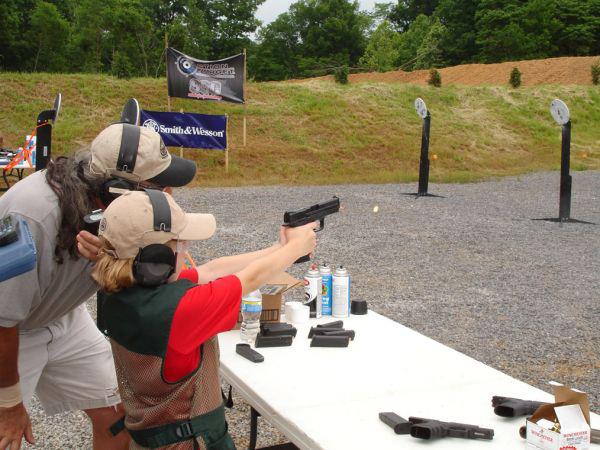
Visit the Steel Challenge website and click the Find Matches tab to see if there’s a competition near you.
Shotgun Competitions: Trap, Skeet and Sporting Clays
How about aerial clay targets? Unless you plan to stick with standard trapshooting single target competition, you’ll need a shotgun capable of firing two shots without reloading. Both skeet and sporting clays have shooting positions where you need to take down two aerial targets at once, so a double-barrel, pump-action, or semi-automatic shotgun is best.
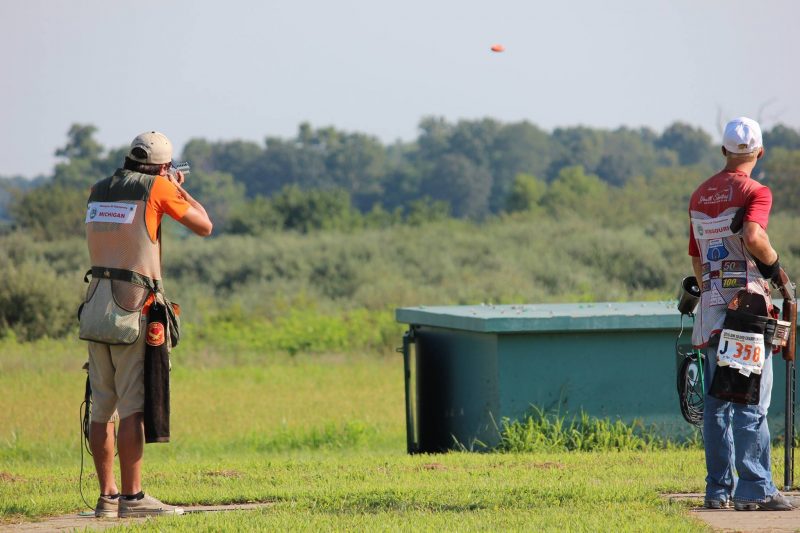
To find a match near you, you’ll need to check with the respective shotgun sports associations: Amateur Trapshooting Association, National Skeet Shooting Association, and the National Sporting Clays Association.
As you might have guessed from the name, most 3-Gun stages require the use of more than one gun. You’ll need a pistol, rifle and a shotgun. 3-Gun has become the fastest-growing shooting sport for good reason. It’s fast moving, you get to shoot a lot, and you’ll exercise a variety of skills with different types of guns. Any given stage might have you shooting close range targets with a pistol, running to a new position where you’ll engage steel targets hundreds of yards downrange with your rifle, then on to another station where you’ll have to knock down steel or hit aerial targets with a shotgun.
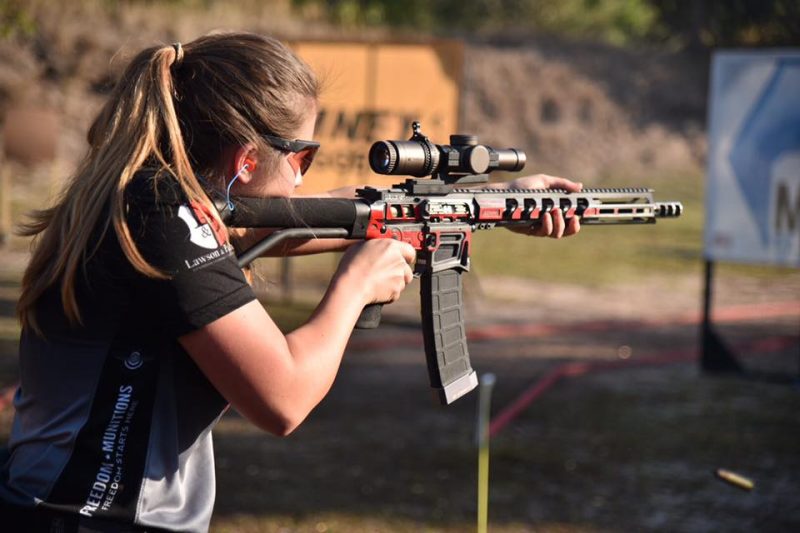
Home base for the 3-Gun sports is 3-Gun Nation. There you can learn the rules and find a club near you.
Precision Rifle Series (PRS)
Relatively new on the scene and rapidly gaining popularity is the Precision Rifle Series. In plain English, that means long-range shooting. You’ll have to engage targets from a variety of shooting positions from hundreds of yards away. The Series was originally founded as a platform for the nation’s best long-range shooters to compete, but has now expanded to local clubs all across the country.
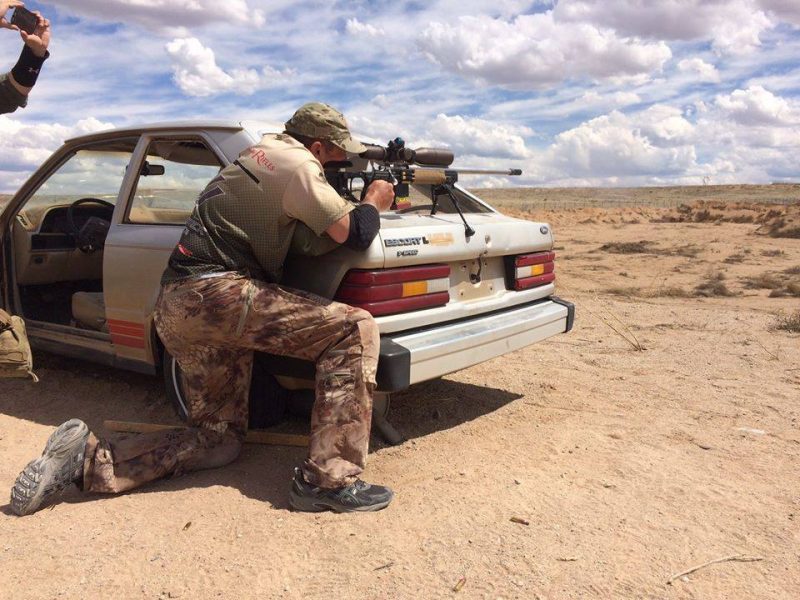
You can learn more about the Precision Rifle Series here.
Don’t forget about all of the NRA competitions we discussed last time including High-power Rifle, Smallbore, Airgun, Conventional Pistol, Action Pistol, and Silhouette, just to name a few. For a refresher on those, read NRA Shooting Competition Series, Part 2: The Disciplines.
You should be able to find everything you need to get started by searching for an upcoming NRA Sanctioned Match near you. Once you’re a classified shooter, you can use NRA’s Shooter Classification Lookup feature to keep track of your progress.
In the final installment of this four-part Competitive Shooting Series, I’ll discuss NRA Shooter Classifications and National Records. Stay tuned!
